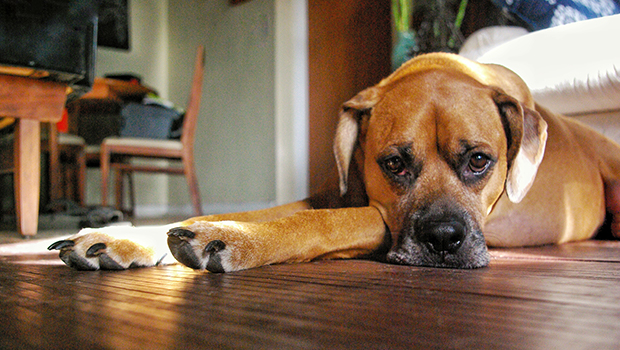The COVID-19 pandemic has had a significant impact on people’s daily lives and routines, including the way they work and care for their pets.
If you are returning to work after a period of being at home due to the pandemic, it is important to consider the needs of your dog and how they may be affected by the change in routine.
It may be helpful to gradually adjust your dog to the new routine, such as by gradually increasing the amount of time they spend alone or finding someone to check on them during the day.
You may also want to consider enrolling your dog in a daycare or hiring a dog walker or pet sitter to provide them with socialization and exercise while you are away.
It is also important to continue to provide your dog with the necessary care and attention, including regular exercise, grooming, and medical care.
If you are concerned about your dog’s adjustment to the new routine, it may be helpful to consult with a veterinarian or a professional dog trainer for guidance.
How Is Your Dog Doing?
Not all dogs can be left alone all day, especially when they have gotten used to you being around all the time.
Separation Anxiety
Separation anxiety is a common behavioral problem in dogs that can occur when they are left alone or separated from their owners.
Dogs with separation anxiety may exhibit a range of behaviors such as excessive barking or whining, destructive behavior, attempting to escape, and house soiling.
These behaviors can occur when the dog is left alone or even when the owner is present but not actively interacting with the dog.
Separation anxiety can be caused by a variety of factors, including a lack of socialization and exposure to being left alone, a history of abuse or neglect, and changes in the dog’s routine or environment. It is important to address separation anxiety in dogs as soon as possible, as it can lead to other behavioral problems and can be distressing for both the dog and the owner.
To help a dog with separation anxiety, it is important to establish a consistent routine, provide plenty of exercise and mental stimulation, and gradually increase the amount of time the dog spends alone.
It may also be helpful to use positive reinforcement training to teach the dog coping skills and to seek the guidance of a veterinarian or a professional dog trainer.
You can also add some natural supplements to help your dog relax. In extreme cases, medication may be necessary to help manage the dog’s anxiety.
It is important to work with a veterinarian or a behavior specialist to determine the best course of treatment for your dog.
Preventing Separation Anxiety
Separation anxiety in dogs is a common problem that can cause dogs to become anxious, stressed, and sometimes destructive when left alone. Here are some tips for preventing separation anxiety in dogs:
- Gradually increase the time you spend away from your dog: Start by leaving your dog alone for short periods of time, gradually increasing the length of time you’re away as your dog becomes more comfortable.
- Provide plenty of exercise and mental stimulation: Make sure your dog gets enough exercise and mental stimulation while you’re away. This can help tire your dog out and prevent them from getting anxious.
- Leave your dog with things to do: Give your dog toys or puzzles to play with while you’re away. This can help keep them entertained and prevent boredom.
- Practice good training and socialization: Make sure your dog is well-trained and socialized. This can help them feel more confident and secure when left alone.
- Consider using a crate: Some dogs may feel more secure in a crate while they’re alone. Make sure the crate is a comfortable size and has plenty of ventilation.
- Consult with a veterinarian or a professional dog trainer: If your dog’s separation anxiety persists or is severe, consider consulting with a veterinarian or a professional dog trainer for additional guidance and support.

